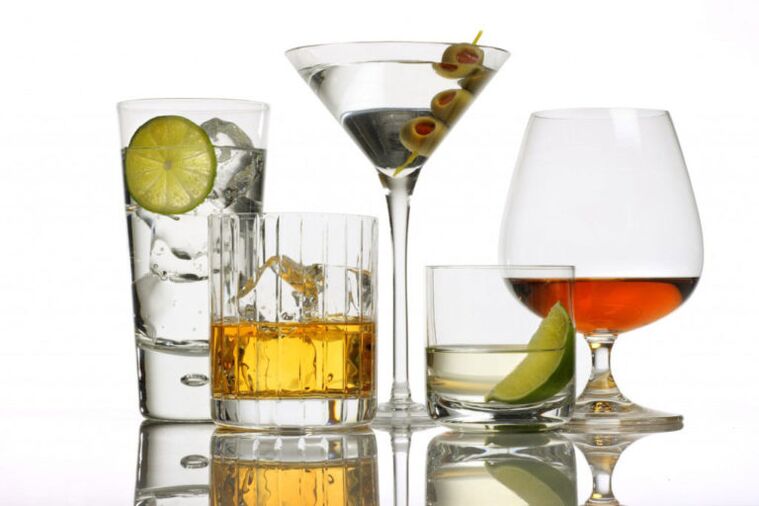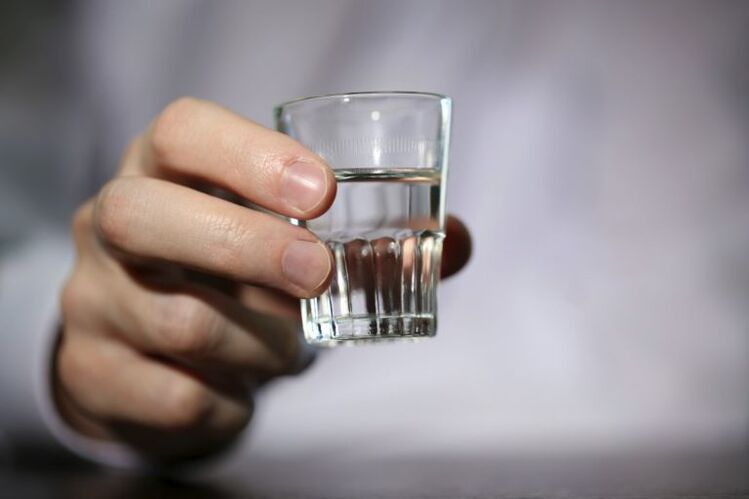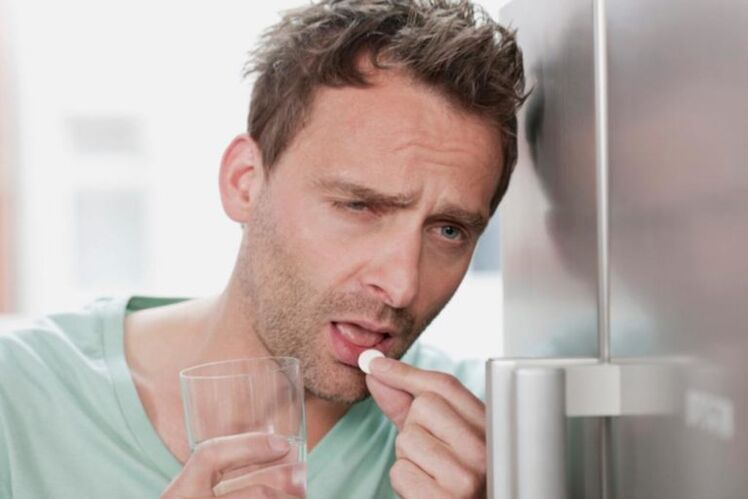Alcoholic beverages should be taken in small amounts. This will be confirmed by any medical personnel. This limitation is related to the negative effects of ethanol on organ systems. Many people understand the magnitude of the problem and are aware of the seriousness of the consequences of alcoholism, so they are interested in how much is considered acceptable or, conversely, harmless.
Alcohol Benefits
It has been argued that alcohol in reasonable doses is good for health and therefore not prohibited. The most frequently mentioned is the beneficial effect on the circulatory system. Therefore, alcohol—the main ingredient in alcoholic beverages—helps dissolve cholesterol plaque that builds up on the lining of blood vessels. Their presence indicates the presence of diseases such as atherosclerosis. The disease develops often against dietary habits and the use of large amounts of animal fats, which tend to turn into "bad" cholesterol or low-density triglycerides. These compounds can clog the lumen of arteries, interfering with the free flow of blood.

Another valuable quality of alcoholic beverages is their ability to quickly relax and relieve stress. Even a small amount of a strong drink will perk you up and improve your emotional state. This is due to increased concentrations of happiness and pleasure hormones.
Of course, all valuable qualities will be reflected when drinking high-quality wine, so careful consideration should be given to the choice of wine. Product type is also important. So, the biggest benefit is dry wine or cognac. These strong drinks contain bioflavonoids, vitamins and antioxidants.
It turns out that alcohol can actually be beneficial when used properly. There are many nuances that help ensure safe drinking.
Can I drink alcohol without harming my body?
Doctors are convinced that it is impossible to rule out the negative effects of alcohol on the body, but it is realistic to minimize them. There are several methods, but the best effects are observed in their complex use.
- decrease. If a person drinks heavily at one time, health deterioration cannot be avoided. The safest option is to drink alcohol in moderation.
- rarely use. Those who drink alcohol daily or even twice a week suffer from chronic alcohol-related diseases. Therefore, it is best to drink less strong drinks as much as possible.
- drink only one drink. The combination of alcohol choices is harmful to the nervous system. Also, in this case, a severe hangover will not be avoided. It pays to choose a specific drink for yourself and not get carried away by mixing different drinks.
- choose food correctly. You can't drink alcohol or snack, even if we're talking light beer. Foods rich in protein and fat protect the body from absorbing ethanol into the bloodstream too quickly and also form a barrier that protects the lining of the gastrointestinal tract from alcohol, an aggressive substance.
By following these simple rules, the negative effects of alcohol on the body will be minimized, which will certainly have positive health effects.
What affects the determination of a safe dose

Therefore, there is no absolute safe dose of alcohol. Alcohol, even in trace amounts, can be harmful to your health, so if you can say no to hard liquor, it's best to use it.
Usually, celebrations and banquets are rarely without alcohol, so everyone drinks. To protect yourself from irreparable consequences, you need to carefully monitor the amount of alcohol you've taken and how you're feeling.
There are no general figures for how much you can drink without harming your body. There are various parameters to be aware of that affect this:
- gender. Women get drunk faster than men, so their dosage should be reduced.
- weight. The lower the body weight, the faster the poisoned state will come.
- metabolic rate. It is important that the alcohol is processed by the body and eliminated from the body as quickly as possible. If the metabolic process takes place intensively, then the neutralization of alcohol will not be a problem. This is a natural trait that cannot be changed.
- liver condition. This gland has the primary responsibility for removing all toxins from the body, including alcohol and decay products. If the liver tissue has been damaged, the alcohol neutralization process will proceed slowly. If so, then a person should reduce their alcohol intake.
- food. Those who ate a protein-rich meal alongside their alcohol intake drank more alcohol. It is: fish, meat or poultry. Fats, such as vegetable oils, are also useful.
- additional training. There are many ways to prepare for an event. Some work really well and make you drink a little more of your hard drink. Therefore, it is recommended to take preparations with a high content of absorbents and organic acids two hours before a banquet.
Based on these parameters, it can be concluded that the safe dose of alcohol is different for each individual. Experts only give average figures that need to be adapted for themselves.
safe doses of alcohol
A harmless dose of alcohol is the amount that the body processes quickly and without consequences. To determine it, you must first calculate the toxicity threshold, the volume of pure ethanol that the liver can successfully cope with. That's 90 grams, if we're talking about a person weighing 70 kg. A strong woman weighing about 100 kg can drink a little more than ½ glass of strong alcohol - vodka or cognac.
That's 90 grams, if we're talking about a person weighing 70 kg. A strong woman weighing about 100 kg can drink a little more than ½ glass of strong alcohol - vodka or cognac.
Remarkably, the brain's toxicity threshold is much lower, equivalent to 19 grams of pure ethanol, which is equivalent to 60 milliliters of vodka. Neurons and the connections between them are sensitive structures that begin to crumble under the influence of negative factors, including ethanol. When calculating safe doses, attention should be paid to the brain toxicity threshold.
How much to drink to avoid a hangover
Most people ask this question quite often. Citizens are more interested in how they feel the next day than physical damage, which is imperceptible early on.
Doctors give average figures according to which a person can ingest up to 1. 5 ml of pure ethanol per kg of body weight. This figure is for men, women are advised to use slightly less.
So, in order not to get a hangover, a person weighing 70 kg should stop if he has drunk 262 ml of vodka. It is speculated that the drink was only drunk for a short time and entered the body almost at once. If you drink this amount gradually throughout the night, your already engaged liver will try to neutralize some of the toxins. In this case, the volume of alcohol can be increased by about a third. These are just numeric parameters common to all.
In fact, even small amounts of alcohol can cause acute intoxication and a severe hangover. Therefore, you need to focus mainly on personal feelings.
Therefore, if severe dizziness, migraine, dark eyes, or arrhythmia occur, you should stop drinking immediately. These are typical signs of excessive intake. It is best to take steps to cleanse your body of alcohol.
The following are considered valid:
- gastric lavage;
- ingestion of enteric absorbents;
- taking organic acid supplements;
- plenty of drinks;
- moderate physical activity;
- walk in the fresh air;
- Dream.

According to doctors, using alcohol in reasonable doses can lead to a hangover. Mostly, it happens after drinking beer, champagne, cocktails and wine. Strong drinks taken according to all the rules rarely lead to worsening health conditions.
A hangover can occur after drinking carbonated drinks, as the air bubbles irritate the mucous membranes and are quickly absorbed into the bloodstream, resulting in instant intoxication. Cocktails are dangerous because several alcoholic products are mixed in the manufacturing process, and wine often contains fusel oils, which become a major cause of headaches.
maximum dose of alcohol
Doctors consider not only the dose that is safe for health, but also the maximum amount, and strongly discourage drinking more than this amount. This is an amount the body cannot handle in a day. Usually, full recovery takes more than a week.
Doctors consider a maximum of 170 grams of pure alcohol per day. This is 538ml of vodka - one bottle. If a person abstains from alcohol for another 8-9 days, there are no serious negative consequences with such doses, but it is better to increase this interval by one month to allow organs to rest and tissue to regenerate.
Using maximum doses of alcohol can lead to a severe hangover with the following symptoms:

- Headache;
- nausea and vomiting;
- diarrhea;
- abdominal distension;
- Heartburn;
- Thirsty;
- bad breath;
- edema;
- hand tremor;
- chills;
- weakness.
These are outward signs that become apparent the next morning when ethanol is processed into toxic acetaldehyde. In fact, there are deeper injuries to the body.
Consequences of taking extreme doses
Alcohol has adverse effects on all structures, including the heart, brain, liver and pancreas. By using even reasonable amounts systematically, the cells die and the organs thus cease to function properly. As a result, chronic diseases develop, sometimes affecting a lifetime.
A greater danger of alcoholism is dependence. Initially, a person develops psychological cravings, it seems to him that without alcohol he will not be able to relax and communicate easily with others. Such patients do not recognize alcoholism itself and believe that they can stop drinking at any time.
Addicts realize there is a problem when trying to quit smoking. Without alcohol, hormonal balance is disturbed and the body can experience a withdrawal syndrome similar to a bad hangover. This is a sign of an addiction transitioning to a physical stage. Alcoholics themselves need medical and psychological help. He won't be able to kick the addiction on his own.
Furthermore, in the absence of therapeutic measures, dependence can progress to a third and final stage called encephalopathy. During this stage, brain cells are completely destroyed, causing irreversible changes in the human psyche. Alcoholics rapidly degenerate as a person, losing their memory and can no longer boast of their intellectual abilities.
The risk of addiction makes it possible to equate alcohol with drugs. This means that alcohol use should be approached with caution. A rare feast with high-quality wine, which will not cause major damage, and can also give the body a chance to recover. Health problems cannot be avoided if you drink heavily on a regular basis.































